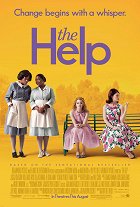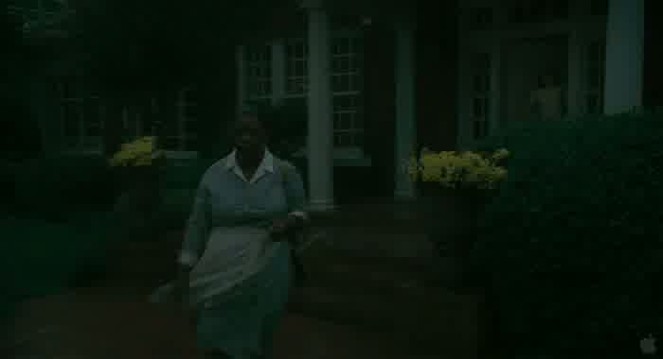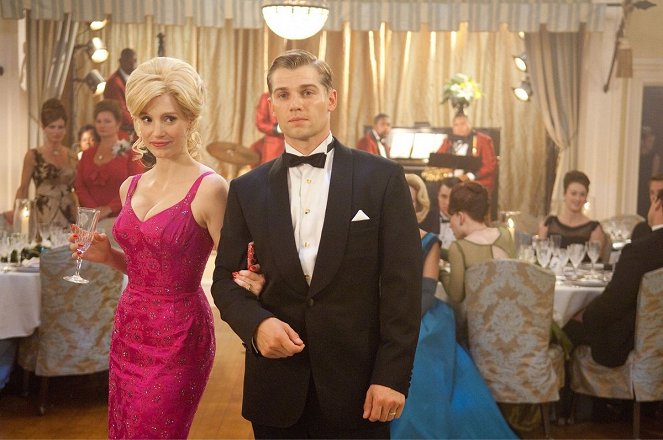Directed by:
Tate TaylorScreenplay:
Tate TaylorCinematography:
Stephen GoldblattComposer:
Thomas NewmanCast:
Emma Stone, Viola Davis, Bryce Dallas Howard, Octavia Spencer, Jessica Chastain, Ahna O'Reilly, Allison Janney, Anna Camp, Christopher Lowell, Cicely Tyson (more)Plots(1)
Based on one of the most talked about books in years and a #1 New York Times best-selling phenomenon, “The Help” stars Emma Stone as Skeeter, Viola Davis as Aibileen and Octavia Spencer as Minny — three very different, extraordinary women in Mississippi during the 1960s, who build an unlikely friendship around a secret writing project that breaks societal rules and puts them all at risk. From their improbable alliance a remarkable sisterhood emerges, instilling all of them with the courage to transcend the lines that define them, and the realization that sometimes those lines are made to be crossed — even if it means bringing everyone in town face-to-face with the changing times. (official distributor synopsis)
(more)Videos (57)
Reviews (10)
The Czech title is a diagnosis. Exactly: a black-and-white world, to the extent that if one wanted to nag, one could write something about political correctness shifting to inverted racism: white women are stupid, superficial, incapable of emotional and practical life. The black servants resemble a kind of super-ego - wise, kind, contemplative, parental, holding all the functions that their social "superiors" lack. It is also interesting in that those who are not "racists" in the film - aside from the main heroine - they are characters who are either enormously stupid (Celia) or sick (old Holbrooke), or absent (men, probably... some of them). Clearly, it is not the creative intent that Tate Taylor pursued godly goals, but as history teaches us - black-and-white worlds sometimes inadvertently subvert themselves, too much for clarity (see my favorite social realism). Black and white worlds also require a very conservative form, settled characters and a very limited ability to reflect on problems. This film does not reflect the essence of racism, but rather the simplified effort of the current "white" civilization to name old wrongs in a cultured way. There is no doubt that if this phenomenon were simplified to the level portrayed in Taylor's film, it would have been resolved long ago. But I take The Help as it is: at its core, a pleasant, cultivated tale of the battle between good and evil, surrounded by something from the grandeur of our grandmothers' wisdom and arthritic sentiment. Thanks to the episode with shit, the effort for a little rougher moments and a quite pleasant pace, I give it a star more than the whiny sentimental The Descendants. At their core, however, these are completely identical types of films. Designed for self-redeeming emotion and numb forgetfulness. A cultural symptom.
()
An above-average soap opera that, through a sequence of lightweight episodes (not a single scene fully conveys how serious the situation in the South really was), capitalises on the myth of progressive young people who made the United States a better country in the 1960s. The story with a big heart is stuffed into a hermetically sealed bubble conveying the contemporary socio-political context to the trapped characters only through television and radio. The film refuses to take into account what happened in the real world, just as the white ladies refused to acknowledge their servants’ status as human beings enjoying full rights. The Help is even more consistent in denying the existence of bad, bad things than the similarly simplified Precious, unlike which The Help offers a likable white protagonist for the white audience to identify with. I welcome the effort to make a women’s film, though melodramatic only in moments and not in its overall structure, and I respect the need for a purgative spectacle that turns a humiliating defeat into a proud victory, but to accept the simplification of a serious historical subject into almost family entertainment with all of the ideological perversity concentrated into a single ultra-bitch strikes me as supremely conformist. 55%
()
Despite the fact that Skeeter's story openly appeals to emotions through its narrative, soundtrack, and gradually revealed small details, I am surprised by how straightforward it actually is. There is no hiding of the main theme in a variety of subplots, no treading water. From the first significant scene, it delivers a clear message at a fast pace and easily maintains it for over two hours. As a result, the triple catharsis feels even more impactful. Perhaps if there had been a more definitive, slightly more fateful conclusion, I would have been fully satisfied. In that case, I felt that I could have handled an additional five minutes of voiceover in a slightly distant future during the end credits. Nevertheless, The Help won me over not only with its storytelling power but also with its flawless casting, even in the smallest roles.
()
A must-see feel-good movie about racial issues in upper middle-class USA in the 1960s. Paradoxically, the most black and white is the dosage of emotions, which is sometimes too simplistic and for effect – the vast majority of whites are superficial scumbags and the vast majority of blacks are good and model workers. But if you overlook this creative vice of pigeonholing characters in an otherwise interesting story, you get a number of scenes with a huge range of emotions that can grab you by the heart and move you appropriately. An intense viewing experience, a stimulating Oscar-winning film with a stellar cast and deservedly positive reviews.
()
Yeah, this is the kind of politically correct, high-minded Oscar safe bet where pretty much all the black characters can be compared to the greatest philosophers in history thanks to their human (popular) wisdom, but I can’t help it, I really liked it. In its 146 minutes, it has charm, is entertaining, and has good performances, direction and script. It was nice, but at the Oscars I will root for someone else.
()



Ads